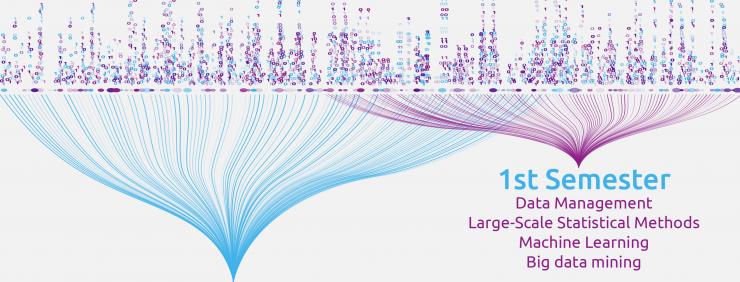The first semester courses of the MSc in Data Science introduce new students to the program and its structure, and therefore serve as the basis to delve further into this master's program.
Data Management
Data Management is one of the first Semester courses and the instructor, Thanasis Vergoulis defines it as "the course that sets various cornerstones for a successful data scientist education. It introduces the basic notions related to data management, it discusses the best practices for the traditional database management technologies and SQL, while it paves the way for noSQL technologies and other modern data management approaches".
Large-Scale Statistical Methods
Large-Scale Statistical Methods is the second course of the first semester and the instructor, Ioannis Moscholios describes it: "Think about a machine learning problem. You have your data, inputs and outputs, and you want to determine some mapping between them. So, you use a model and soon you can predict your variables given your input. The problem is that sometimes you don’t have a way to explain what’s going on within your model! That’s where the course of “Large-Scale Statistical Methods” comes in to provide answers with the aid of probability theory".
Machine Learning
Anastasia Krithara describes the flow of the Maching Learning course: "Machine learning enables machines to learn from past data and perform a given task automatically. The course will give a better understanding of the mechanisms and techniques with which data are mined and processed, in order to discover potentially predictive relationships. It will go through all the steps of the machine learning pipeline: processing the data, building-training-testing models & improving the models’ efficiency".
Big Data Mining
Ilias Zavitsanos, the instructor of Big Data Mining course, highlights the power of data and the importance of Big Data mining: "Data powers everything that we do, they have an important story to tell and they drive decisions. Without big data mining we wander out freely without a compass. The goal of this course is to turn data into information and information into knowledge by sifting through noise in data, understanding what is relevant and by making good use of that information to assess likely outcomes. Starting with data cleaning and exploration, the course progresses to data mining concepts and techniques, and paves the way for handling unstructured data and natural language processing".

